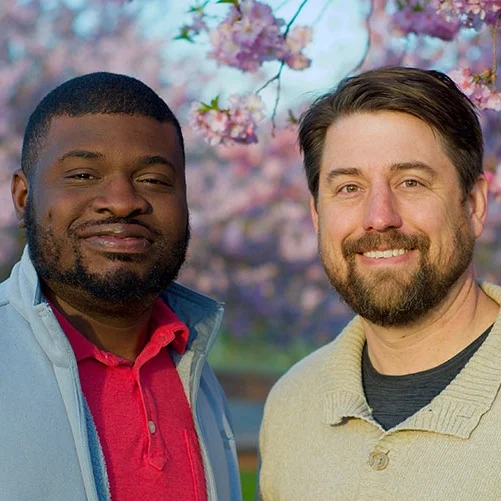Ministry of Reconciliation, Part 2: Greatest Challenges in Our Worship Practices
In the previous installment, I (Drew) shared how our perception of the “kingdom come” transforms our prayers that God’s “will be done on earth.” I highlighted the beautifully rich diversity described in Rev. 21 and lamented the tragic disparity between that vision and the segregated state of the church. As we now take a look at some of the challenges facing us as we pursue racial reconciliation in our worship practices, this installment is a conversation between me and Maurice Dent of Gate City Church of Christ in Greensboro, North Carolina.
Drew: Why is it important to you that our congregations become more diverse?
Maurice: Racial diversity in churches is an issue I am very passionate about. When 1 Pet. 2:9 calls the church a “chosen people,” Peter is not describing a single race or ethnicity, but a group of people newly formed in Jesus. This newly formed “race” evoked by Peter transcends all worldly conceptions about race. Unfortunately, the lack of diversity in our worship assemblies still conforms to worldly racial divisions. If we want the church to be a credible witness to our new identity in Christ, we must pursue racial reconciliation in our congregations.
Drew: As you point out, I agree that our identity in Christ must transcend all other identities, including political. I care very little about who people vote for. I care very deeply, however, about how Christians view our fellow human beings. But when I speak on white privilege, my words tend to get interpreted politically, as though I were promoting the Democratic Party.
Maurice: Yeah, I imagine that’s a risky topic to address. Why do you think it’s important to address white privilege in your context?
Drew: Because the only alternative I see to acknowledging white privilege is a subtle but toxic belief in white supremacy. I grew up believing that the playing field was level. I also grew up accepting the narrative that African Americans were statistically more likely to be drug dealers, drug addicts, violent, unemployed, uneducated, and immoral. I clearly remember thinking on these two assumptions and hating the conclusion to which was leading me—that there must be something inherently inferior or defective about being black. With the information I had, it’s the only conclusion I could imagine. If the playing field is level, and one “team” consistently underperforms, the fault must lie with the underperforming team.
As long as I believed that the playing field was level, I was left with an unspoken, unwanted, yet undeniable attitude of white supremacy.
Regardless of who our members vote for, we must acknowledge “the fact of people with white skin having advantages in society that other people do not have” (Cambridge definition). When we acknowledge the discrepancies in educational opportunities, employment practices, wage earnings, the rates of harassment and unjustified shootings by police officers, etc., it is clear that the playing field is very uneven. Acknowledging this reality has nothing to do with making whites feel guilty or excusing criminal behavior. It is about understanding, compassion, humility, truth, and reconciliation. We cannot obey Paul’s command to “consider others as better than” ourselves while harboring an unspoken sense of racial superiority.
This is by no means the only obstacle hindering white Christians’ pursuit of racial reconciliation, but it seems to be the most formidable for my recent contexts.
What do you see as the greatest challenge facing predominantly black congregations?
Maurice: The primary challenge I see is pursuing racial reconciliation and not just racial integration. Reconciliation will only work by taking totally different cultures and creating a brand new culture in Christ, which will incorporate the cultures of each particular race. In my experience, however, people are looking more for integration. We want diversity but only if the other race is willing to conform to our own. When I visit predominantly white congregations, many of these churches have a good number of “black faces” in their assemblies. These churches might claim diversity, but the leadership is white, the culture of the music is white, and the preaching style is white. When there is no representation of the black community, it is not true diversity, and it is certainly not reconciliation.
In the predominantly black church, few of us hold any positions of authority or leadership in any other part of our lives. For many of us, then, church is the one place we can find acceptance, leadership, and in many cases, self-worth. So there is a real fear that our contributions will be dismissed when a diverse membership is involved.
For instance, I once asked a Ghanaian Christian what worship looked like in Africa. He shocked me by describing a worship assembly that sounded identical to worship assemblies here in America. When I asked him why they worshiped in this way, he explained that it was the way the white missionaries taught them how to worship. They basically eradicated Ghanaian culture from the worship assembly. And this is the fear shared by many leaders of predominantly black congregations in America.
Drew: Unfortunately, I think that is a valid fear. As a member of the dominant racial culture in America, it is tempting for me to believe that our way of doing things is the way things ought to be done. This ethnocentric undertone is contrary to the incarnational core of the Gospel.
Maurice: Exactly! The gospel of Jesus is all about reconciliation. If we would start with the gospel, I believe we could get to a place of humility and forgiveness that is necessary for us to move forward.
In the third and final part of this series, we look forward to exploring some preliminary ideas about how we might better realize racial reconciliation in our churches.








